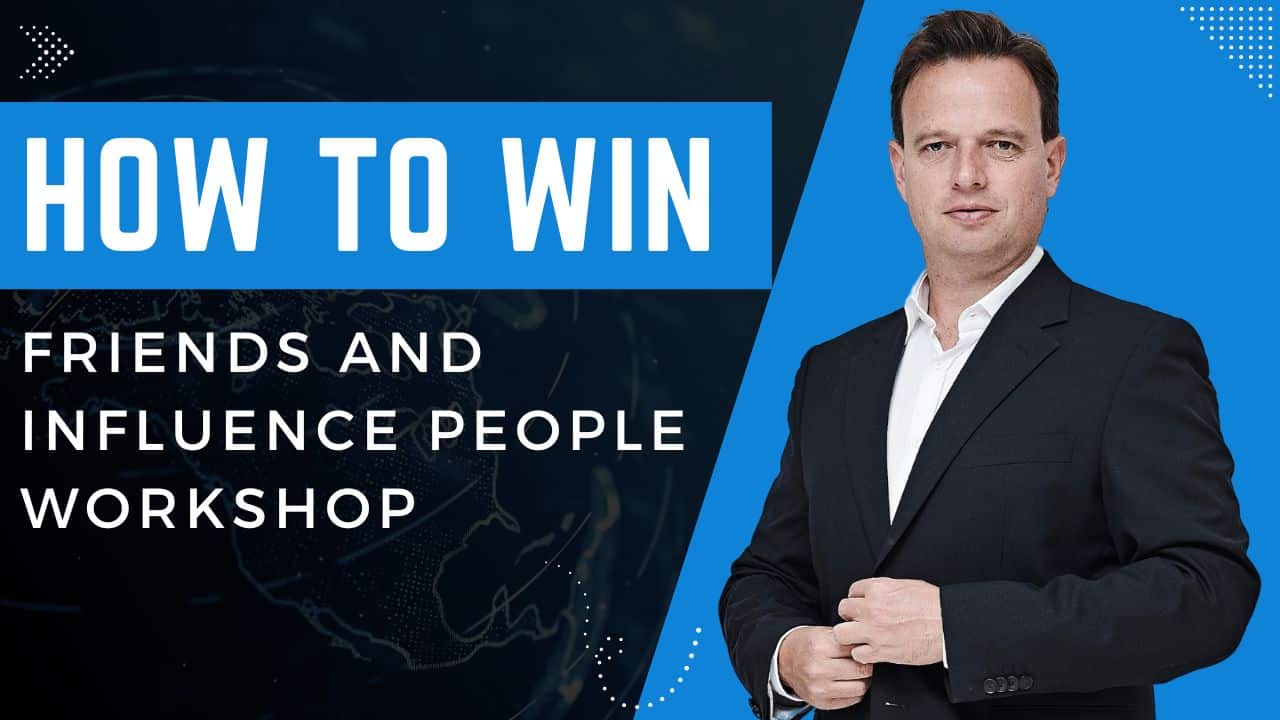“You can make more friends in two months by becoming interested in other people than you can in two years by trying to get other people interested in you.”
Dale Carnegie, How to Win Friends and Influence People
Communication, building relationships, and influencing others are key to career advancement and success.
There’s no better book than Dale Carnegie’s How to Win Friends and Influence People to learn this from (first published in 1936).
So, I thought about creating a workshop for teams and groups to leverage the book’s insights.
This workshop helps people excel in networking, negotiations, sales, leadership, and other aspects of their professional lives.
Let’s dive in.
Sidenote: While "How to Win Friends and Influence People" doesn't explicitly list a set number of principles, scholars have identified approximately 30 key principles or techniques based on the book's content.
For the purposes of this workshop, we’re going to focus on the “Top 8” most applicable to teams:
- Show Genuine Interest: Demonstrate sincere curiosity about others' lives and interests to build rapport and strengthen relationships.
- Listen Actively: Practice attentive listening, focusing on understanding others' perspectives without interrupting or judging.
- Remember Names: Make an effort to remember and use people's names, as it shows respect and fosters a sense of importance.
- Speak in Terms of Others' Interests: Frame conversations around what matters to the other person, making them feel valued and understood.
- Avoid Criticism: Instead of criticizing, offer constructive feedback or find areas of agreement to maintain harmony and respect.
- Give Honest Appreciation: Offer genuine praise and recognition for others' efforts and achievements, boosting morale and strengthening relationships.
- Arouse in Others an Eager Want: Appeal to others' desires and motivations to inspire action and cooperation.
- Encourage Others to Talk About Themselves: Show genuine interest in others by asking open-ended questions and listening attentively to their responses.
Workshop Objective
To equip participants with practical strategies for building genuine connections and positively influencing others in both personal and professional settings, based on the principles outlined in Dale Carnegie's book, How to Win Friends and Influence People.
Step 1 - Building Genuine Connections
Objective: To understand the importance of genuine connections and to practice foundational principles for building them.
Activities:
- Start by discussing the importance of building genuine connections in personal and professional life.
- Highlight the first 3 key principles using the definitions contained in the workbook download: Show Genuine Interest, Listen Actively, and Remember Names. Ask for examples of each principle in action and discuss their significance as a group.
- Conduct interactive activities like role-playing scenarios where participants focus on one or more principles.
- Encourage participants to share their experiences when someone used the principles with them and how it made them feel.
Step 2 - Effective Communication Techniques
Objective: To learn effective communication strategies that promote understanding, respect, and appreciation.
Activities:
- Introduce the effective communication techniques outlined in Carnegie's book: Speak in Terms of Others' Interests, Avoid Criticism and Give Honest Appreciation. Ask for examples of each principle in action and discuss their significance as a group.
- Conduct exercises in which participants practice framing their messages to resonate with their audience's interests.
- Discuss the impact of criticism and negative feedback on relationships and explore alternative ways to provide constructive feedback.
- Encourage participants to share examples of times when they received sincere appreciation and how it motivated them.
Step 3 - Influencing Others Positively
Objective: To identify and apply strategies for positively influencing others based on Carnegie's principles.
Activities:
- Discuss the last 2 strategies in our list for positively influencing others based on Carnegie's principles: Arouse in Others an Eager Want and Encourage Others to Talk About Themselves.
- Conduct a group discussion in which participants identify ways they can apply these principles in their personal and professional lives to influence others positively.
- Encourage participants to set specific goals for implementing these strategies and hold themselves accountable for their progress.
- To conclude the workshop, emphasize the importance of continuous practice and reinforcement of these principles in building lasting relationships and positively influencing others.
Conclusion
Throughout the workshop, encourage active participation and reflection, and apply the principles discussed in "How to Win Friends and Influence People" to participants' own experiences and contexts.
Remember, like any skill, effective communication and relationship-building require practice and reinforcement.
Without consistent practice and application of these principles in various contexts, individuals may struggle to internalize and apply them effectively.
Applying these principles fosters deeper connections with others and cultivates a more positive and supportive team environment.
Well, that’s it for today.
I hope you enjoyed it.

